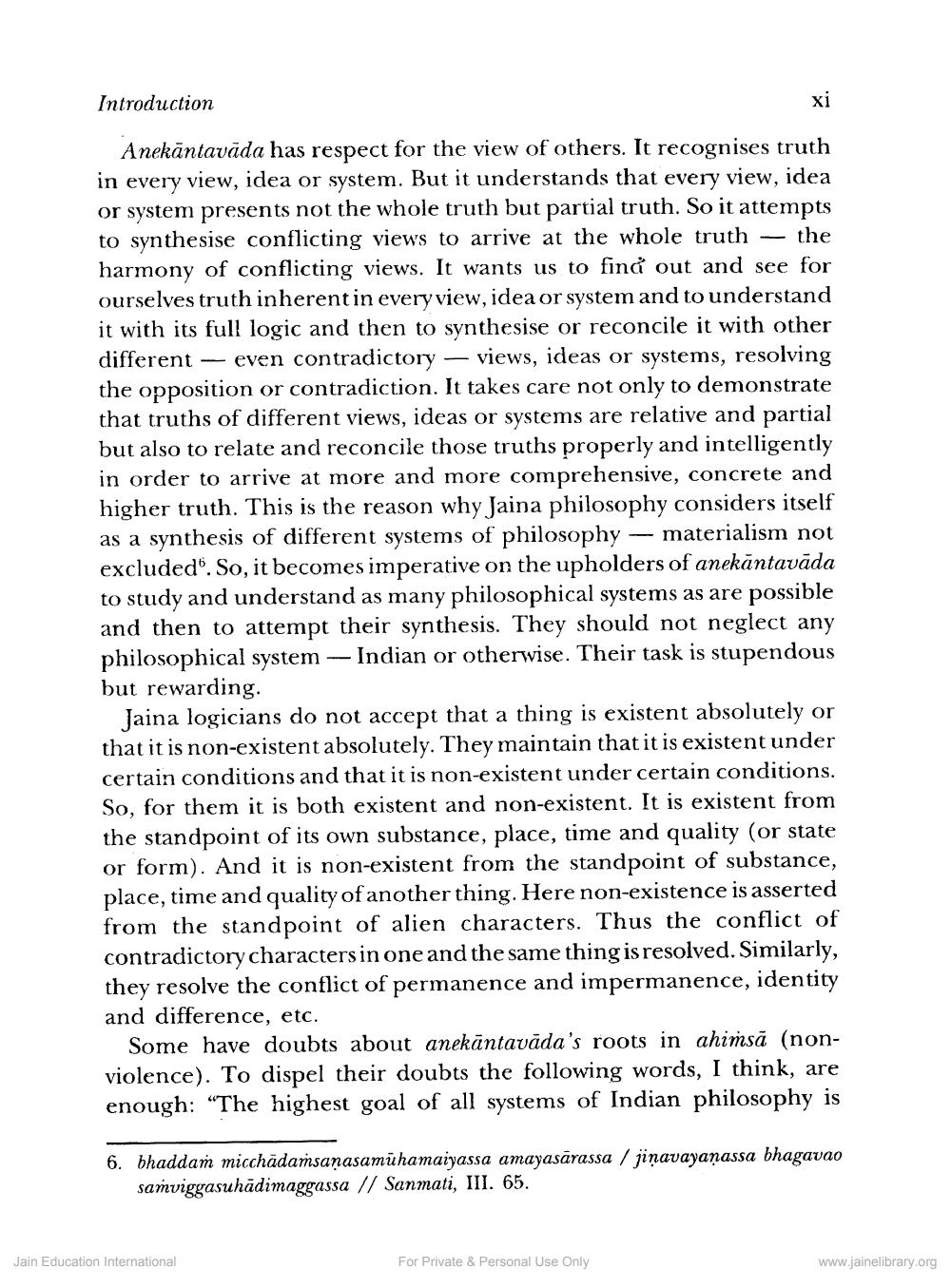________________
Introduction
xi
Anekāntavāda has respect for the view of others. It recognises truth in every view, idea or system. But it understands that every view, idea or system presents not the whole truth but partial truth. So it attempts to synthesise conflicting views to arrive at the whole truth - the harmony of conflicting views. It wants us to find out and see for ourselves truth inherent in every view, idea or system and to understand it with its full logic and then to synthesise or reconcile it with other different — even contradictory — views, ideas or systems, resolving the opposition or contradiction. It takes care not only to demonstrate that truths of different views, ideas or systems are relative and partial but also to relate and reconcile those truths properly and intelligently in order to arrive at more and more comprehensive, concrete and higher truth. This is the reason why Jaina philosophy considers itself as a synthesis of different systems of philosophy -- materialism not excluded. So, it becomes imperative on the upholders of anekāntavāda to study and understand as many philosophical systems as are possible and then to attempt their synthesis. They should not neglect any philosophical system - Indian or otherwise. Their task is stupendous but rewarding.
Jaina logicians do not accept that a thing is existent absolutely or that it is non-existent absolutely. They maintain that it is existent under certain conditions and that it is non-existent under certain conditions. So, for them it is both existent and non-existent. It is existent from the standpoint of its own substance, place, time and quality (or state or form). And it is non-existent from the standpoint of substance, place, time and quality of another thing. Here non-existence is asserted from the standpoint of alien characters. Thus the conflict of contradictory characters in one and the same thing is resolved. Similarly, they resolve the conflict of permanence and impermanence, identity and difference, etc.
Some have doubts about anekāntavāda's roots in ahiṁsā (nonviolence). To dispel their doubts the following words, I think, are enough: “The highest goal of all systems of Indian philosophy is
6. bhaddam micchädarsanasamuhamaiyassa amayasārassa / jinavayanassa bhagavao
samviggasuhādimaggassa // Sanmati, III. 65.
Jain Education International
For Private & Personal Use Only
www.jainelibrary.org




